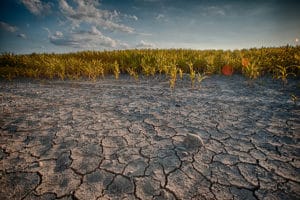Cornucopia’s Take: Ratified by the Obama administration last December, the U.S. became an official member of the seed treaty last month. The treaty grants access to members’ crop gene banks to help speed the breeding of plants able to tolerate increasingly extreme weather conditions.
Research for drought-resistant crops gets boost as U.S. joins seeds treaty
Thomson Reuters Foundation News
by Umberto Bacchi
 |
Scientists are racing to find crops capable of tolerating increasingly high temperatures, water shortages and dry conditions
Scientists’ efforts to develop new crops able to resist climate change, droughts and other shocks have been boosted by the United States joining an international seeds treaty, a research group said on Tuesday.
The United States this week became the single largest party to a U.N. agreement under which countries allow researchers from other member states free access to their crop gene banks – collections of varieties of seeds, plants and roots.
By joining, the United States adds more than 570,000 types of maize, wheat, potatoes and other crops to the 1.5 million varieties available under the treaty’s sharing system managed by the U.N.’s Food and Agriculture Organization (FAO).
“The quality and size of gene bank contributions by the United States will further the progress of scientific research,” CGIAR, a global agricultural research organisation, said in a statement.
As farmers worldwide experience more frequent drought and erratic rainfall linked to global warming, scientists are racing to find crops capable of tolerating increasingly high temperatures, water shortages and dry conditions.
Access to a large pool of seeds is vital for researchers to choose the best varieties to cross and create new strains resistant to pests, disease and drought, while also improving yields to help feed a growing population, according to FAO.
“Biodiversity can help us face the impacts of climate change,” said FAO Director-General Jose Graziano da Silva in a statement marking the U.S. accession to the International Treaty on Plant Genetic Resources for Food and Agriculture.
If a plant bred with seeds shared under the multilateral system is commercialised, part of the profits must be paid into a trust fund benefiting farmers in the developing world.
“Bringing the U.S. collection within (the treaty) opens up the possibility of further commercialisation,” said the treaty’s secretary, Kent Nnadozie.
The United States ratified the treaty in December, before President Donald Trump was inaugurated, but officially became one of its 143 members on Monday, the FAO said.

